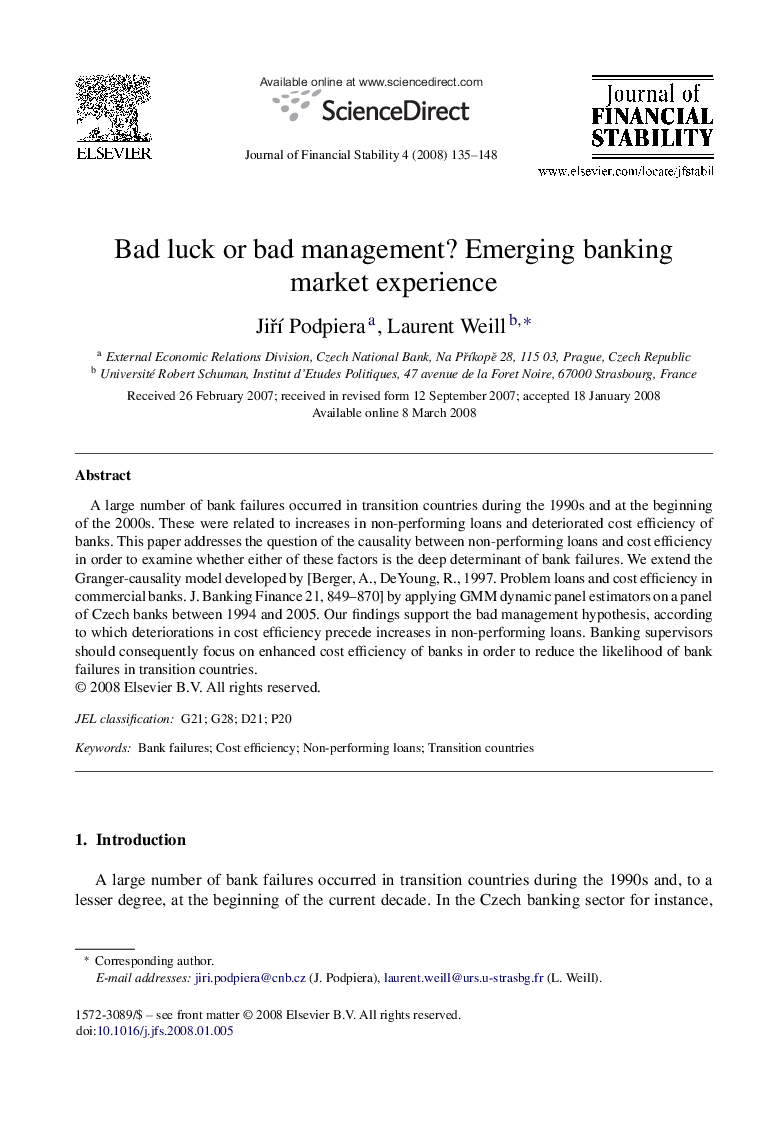| Article ID | Journal | Published Year | Pages | File Type |
|---|---|---|---|---|
| 999187 | Journal of Financial Stability | 2008 | 14 Pages |
A large number of bank failures occurred in transition countries during the 1990s and at the beginning of the 2000s. These were related to increases in non-performing loans and deteriorated cost efficiency of banks. This paper addresses the question of the causality between non-performing loans and cost efficiency in order to examine whether either of these factors is the deep determinant of bank failures. We extend the Granger-causality model developed by [Berger, A., DeYoung, R., 1997. Problem loans and cost efficiency in commercial banks. J. Banking Finance 21, 849–870] by applying GMM dynamic panel estimators on a panel of Czech banks between 1994 and 2005. Our findings support the bad management hypothesis, according to which deteriorations in cost efficiency precede increases in non-performing loans. Banking supervisors should consequently focus on enhanced cost efficiency of banks in order to reduce the likelihood of bank failures in transition countries.
